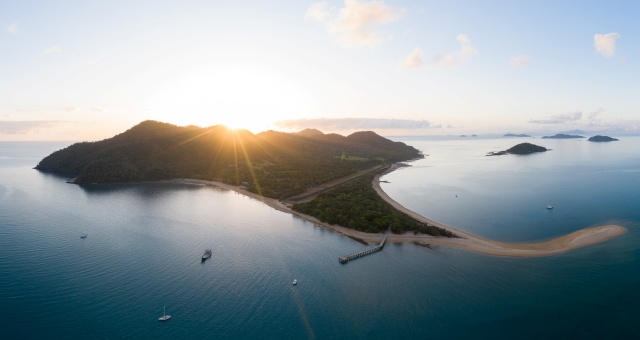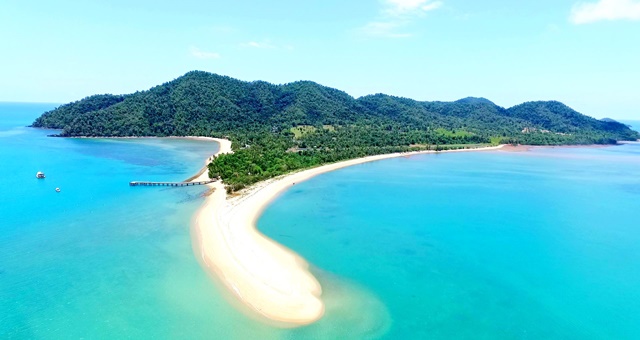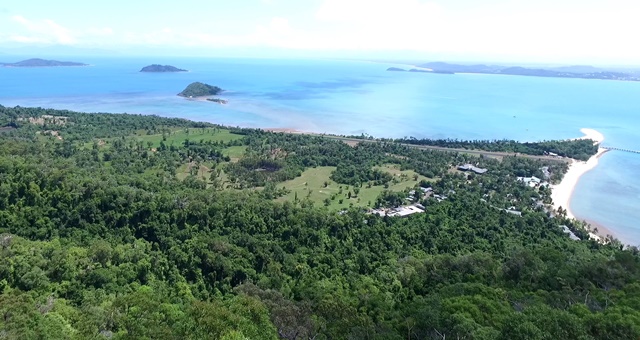Queensland’s Dunk Island has changed hands with local private equity firm Upsense Media Capital purchasing the freehold property for an undisclosed sum, with reports mixed as to the island’s future as a tourism asset.
In a deal brokered by Andrew Langsford and Nick Roche of JLL Hotels and Hospitality Group, Dunk Island is among a number of former tourism icons which flew high during the boom 1980s and 90s as Japanese investment soared, but which is now awaiting revitalisation to former highs as new and sustainable redevelopments.
Dunk Island includes facilities leftover from its former life including mainland power connection infrastructure, a commercial-ready sealed airstrip, water supply and utilities. In its heyday, Dunk Island was a jewel in Queensland’s tourism crown, with Dunk Island Resort featuring tennis courts, a nine-hole golf course, numerous food and beverage outlets and a day spa among 160 hotel rooms, suites and apartments.
Upsense Media Capital Managing General Partner, Mark Spillane, said he was excited at the opportunity to bring new life to the iconic Australian island, saying “we look forward to working closely with the local community, regional and state government and other key stakeholders in planning a sustainable development”.
JLL Hotels and Hospitality Group Senior Vice President, Andrew Langsford, said: “Australia’s regional hotel market has been a huge beneficiary of Australia’s high overseas spend being diverted domestically. However, when international travel resumes, we expect to see accelerated demand from international travellers visiting Australia as our attractiveness as a safe and trustworthy place to visit has been significantly enhanced.”
The purchase is the second time Dunk Island has gone under the hammer in recent years. Reports emerged in 2018 of plans to restore Dunk Island to former glory through a major revitalisation program which included, at its centrepiece, a low-rise 160-room eco-resort which would be carbon-positive and feature many redeveloped and expanded facilities from its former life such as the golf course as well as more swimming pools, a new conference centre and an expanded airstrip to cater to aircraft from further afield.
The project was due to be funded by a capital raising from crypto-currencies, however the buyer failed to deliver on the purchase contract and the sale ultimately fell through.



